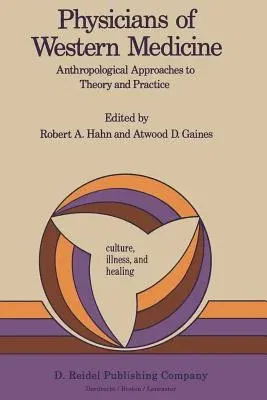Physicians of Western Medicine: Anthropological Approaches to Theory and Practice (1985)Paperback - 1985, 31 December 1984

Qty
1
Turbo
Ships in 2 - 3 days
In Stock
Free Delivery
Cash on Delivery
15 Days
Free Returns
Secure Checkout
Part of Series
Culture, Illness and Healing
Part of Series
Culture, Illness, and Healing
Print Length
345 pages
Language
English
Publisher
Springer
Date Published
31 Dec 1984
ISBN-10
9027718814
ISBN-13
9789027718815
Description
Product Details
Book Edition:
1985
Book Format:
Paperback
Country of Origin:
US
Date Published:
31 December 1984
Dimensions:
23.39 x
15.6 x
1.91 cm
ISBN-10:
9027718814
ISBN-13:
9789027718815
Language:
English
Location:
Dordrecht
Pages:
345
Publisher:
Weight:
503.49 gm

